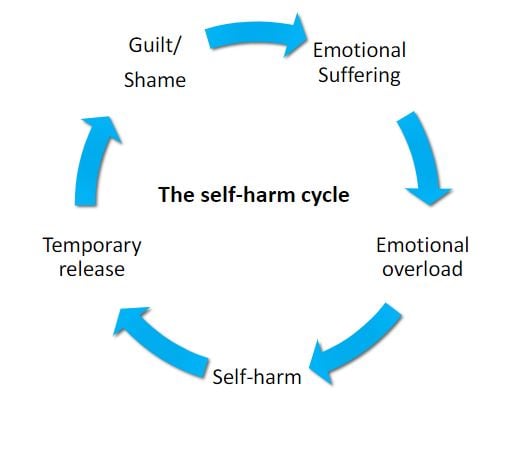Self-Harm is a complex issue…but it affects so many teenagers and children that Fegans perceives a need to speak openly and clearly about it.
The three main questions we get asked about self-harm when we talk about it are:
- Why does it happen?
- How can I prevent it happening to my children?
- What do I do if it does happen? How do I support my child at this challenging time?
So, if we begin by saying every child and every circumstance is different. Underlying reasons, triggers and even resolutions will vary from person to person, family to family. We can then accept that any answers given below should be interpreted through the prism of the person’s lived experience. So that said taking the questions in order:
Why? Self harm is normally a coping mechanism for children to feel in control of what may seem to them to be overtly stressful circumstances, for example exam stress, bullying at school, family conflict. These events seem overwhelming and children will look for a coping mechanism; self harm is often described as this. We often hear words like “quick release” or “control” given as immediate reasons. However, these “positives” are almost always temporary and rapidly outweighed but the negatives that come flooding in like “guilt” or “isolated” or “valueless”. We need to understand this so that when we engage with our children on this matter we don’t make the problem worse with blame, disappointment, guilt or anger. (As shown in the self harm cycle above)
How? Public Health England published a report in December 2017 that listed a number of factors, effective parenting being number 1. If we just look at this point, Fegans would describe effective parenting as a) Spending regular time with your children one to one, with them leading the conversation and engage! b) Enforce good behaviours with praise, let your children know they are valued for WHO they ARE, not what they achieve. e.g. praise them for their courage or kindness, not their looks. Praise them for how hard they work for an exam, not the outcomes.
What? DON’T respond with shock, or intrusive questions, or worst of all disappointment or anger. Take these three steps:
b) Reassure them that you will always love and accept them
c) Ask them how they like to you support them.

